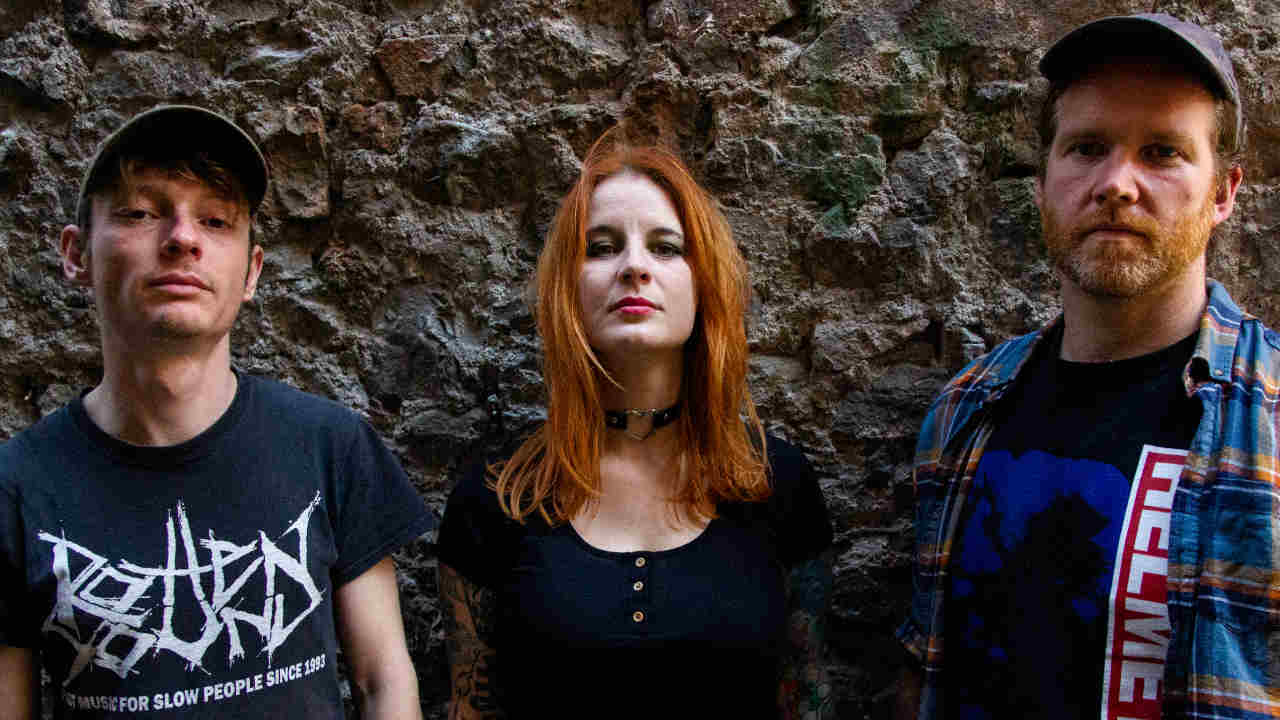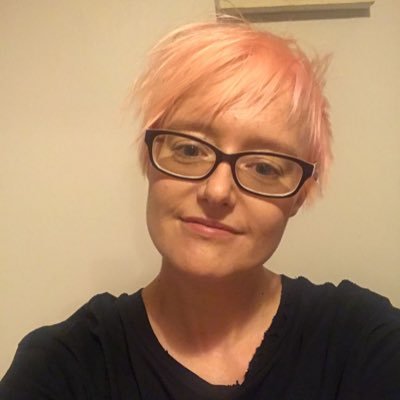In 2019, Svalbard singer Serena Cherry was hit by a black cloud so thick and all-encompassing, she couldn’t see a way out. She had watched people close to her battle depression, and had endured sporadic visits from the black dog herself in the past. But nothing like this.
She stopped eating – “I physically couldn’t get that pleasure anymore” – and encountered fits of uncontrollable crying, describing the period as the toughest of her life. “I got out of an abusive relationship, which is what [the band’s recent single] Open Wound is about,”she says. “It’s a really grey area and you have so many conflicting emotions when you’re in love with someone who hurts you.”
Svalbard’s destructive third record, When I Die, Will I Get Better? isn’t specifically about Serena’s depression but, given she wrote the lyrics in the eye of the storm, it’s unmistakeably “tainted” by it. Raw, unedited and often crushing, while it was clearly cathartic to write and record, it’s an uncomfortable listen, as is any album that offers a glimpse into another person’s emotional rock bottom.
Musically, it sees Svalbard developing their blisteringly emotional and progressive take on blackened post-rock and evolving into a band with a masterful handle on noise and texture, with a visceral social/political conscience. It’s a logical next step from the band’s second album, 2018’s It’s Hard To Have Hope, which set the Bristol-based quartet apart from everything else that was happening in metal at the time as they noisily tackled the left-field topics no one else was talking about: revenge porn, unpaid internships and abortion rights. By the end of that cycle, Serena had emerged as one of metal’s most incendiary lyricists and voices.
Come 2019, emotional turbulence had turned Serena’s life upside down. But even at her lowest ebb, she continued to use her social media platform to promote women’s rights, while writing blogs and think pieces that blasted sexist marketing and pornogrind.
“The more outspoken I’ve got, the more shit I’ve got on the internet,” she reveals, although it started long before that. “It’s always been simmering away over time. Being a teenager working in a guitar shop and guys not wanting to be served by me, or playing my first gig and people coming up and giving awful comments about ‘Being good for a girl’… it all builds up to this little voice that says, ‘No, I’m not going to take this anymore.’”

Serena’s vented some of that anger on the new album. What Was She Wearing? tackles the issue of women being judged for how they dress, while The Currency Of Beauty rages about women being reduced to their physical appearance. She even fires a shot at Metal Hammer – Click Bait is a visceral squall intended as a response to an article published on our website in February 2019. Titled Metal’s most interesting voices are all female – and it’s about time, it ended up attracting more than a thousand Facebook comments, mostly disparaging howls from butt-hurt men.
“I understand that the intentions were good. [But] where is the line between celebrating and fetishising?” she asks when we bring this up. “As soon as it becomes about lumping women together… that’s when it becomes tricky.”
In October 2019, Serena found herself in the eye of another social media storm. Having come across comments from Download organiser and Live Nation boss Andy Copping in 2015 that women “seem to like watching bands more than being in them”, Serena Tweeted a mock example of what a Download line-up would look like if every single band had a woman in it. The Tweet blew up, provoking further discussion about representation of women in metal and pushing her once again into the firing line of the internet. This time though, Serena feels her words have become a real driver for change.
“On the Download [2021] line-up, half the bands that were on that bill that I made are on there,”she says. “If you look at that poster, they have made a concerted effort to have more women on the bill, which is fantastic.”
By the end of 2019, Serena had started a PhD, writing a thesis on women in metal. But at the time, she was still working through her depression. “It was a paid position but the catch was, you had to move to Milton Keynes to do it,” she explains. “I felt really isolated when I was there and I think I’m just incredibly disillusioned with higher education. Everything was about obscuring the point rather than making it as clear as possible.”
After five months she quit and moved back to Bristol; at the time, she felt like a failure. Looking back now, she feels it wasn’t a wasted experience. “It wiped away that feeling, when you’re in your 30s, that you should be doing something real, legitimate and grown up. So you do a PhD, or try to get a promotion because it’s what you feel you should be doing at that age. Then you realise it’s not for you and that’s fine.”
That sense of self-acceptance defines where Serena is today. Sitting in her home surrounded by guitars and eating a pack of Chocolate Buttons, the singer is clearly in a better place. Recovery, she says, has been a slow process. So slight, she barely realised it was happening. Her appetite has returned, she’s taken up jiujitsu – a contact sport she’s missing terribly in the age of COVID – and has found happiness in a new relationship. “[Our publicist] Becky Laverty said, ‘There’s going to be a day where you, for no reason, feel like you again’,”Serena smiles. “A couple of months ago, it happened. There was no big moment or movie-style reveal, something just came back.”
That shift is mirrored in ethereal album closer Pearlescent, a track Serena describes as, “the light at the end of the tunnel”. “The album is very much a tunnel of depression,”she says. “But I’ve taken that darkness and turned it into something creative. Now, rather than revisiting the pain every time we play these songs, it’s empowering. Pearlescent is about meeting my partner who I’m with now, and finding that light and that hope you thought you wouldn’t be able to feel again.”
She smiles. “What is it Trent Reznor says? The way out is through.”

